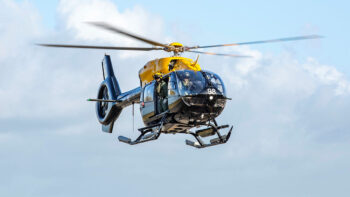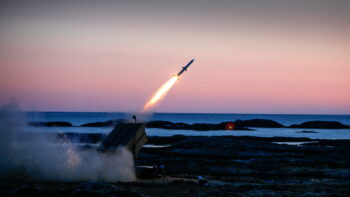
F-35As
THE PENTAGON: The US will be forced to spend between $500 million and $600 million to shift the F-35 supply chain from Turkey to other countries, a number dwarfed by the $9 billion worth of work Turkey will forfeit in the coming years now that it is being removed from the program, Pentagon officials said today.
In response to the Turkish purchase of the Russian S-400 air defense system, and it’s having taken delivery of the system on Friday, Turkey will be suspended from the F-35 program by March 2020, undersecretary of defense for acquisition and sustainment, Ellen Lord, told reporters at the Pentagon. Likewise, Turkish pilots and maintainers being trained in the US have been told to leave by the end of July.
Lord declined to directly answer questions about whether the decision to suspend Turkey is reversible, or what plans there are for the 30 aircraft Turkey has already committed to purchasing. “We have been working in earnest to develop and implement changes to our supply base and supply chain to accommodate the potential for Turkish removal from the program,” she said.
Lord also downplayed the effect of Turkish suspension or removal from the program on the overall industrial base, saying that although Turkey makes 900 parts for the aircraft, “the US has full confidence in the F-35 program and supply chain” outside of Turkey. “There is capacity in two other European countries” to do some engine repair work, she said, but refused to specify either the countries or their capabilities.
Initially, the manufacturing of the 900 Turkish-made parts will be moved to companies in the US, but that will “gradually open up” to other partner nations, she said.
Both Lord and deputy undersecretary of defense for policy, David Trachtenberg, underscored that the F-35 controversy won’t impact other areas of US/Turkish collaboration, but it remains unclear what steps Turkey might take in retaliation.
The F-35 suspension “is separate and distinct from the broader array of security interests where the United States and Turkey work together against common threats,” Trachtenberg said. “Our military-to-military relationship remains strong and we will continue to participate with Turkey in multilateral exercises.”
Move over FARA: General Atomics pitching new Gray Eagle version for armed scout mission
General Atomics will also showcase its Mojave demonstrator for the first time during the Army Aviation Association of America conference in Denver, a company spokesman said.


























